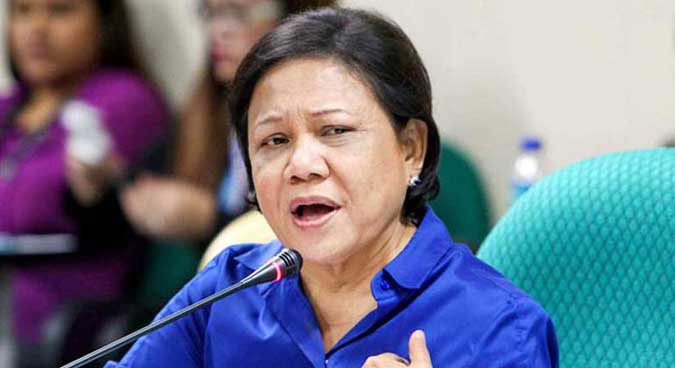Educators join opposition to anti-terrorism law
EDUCATORS from various public and private institutions asked the Supreme Court to declare unconstitutional the law which expanded the definition of terror crimes in the country. The petitioners include teachers from various universities and educators’ groups. In a 77-page lawsuit, petitioners said they are covered by the vague definition of terrorism under the law and they will suffer from its “chilling effects.” They also raised concern over the provision criminalizing possessing objects connected with terrorism. “This kind of environment would add another layer of chilling effect on academics, educators and writers such as petitioners to limit their ideas and criticisms that they may put into writing or in choosing materials for their students to read in order to achieve academic potential and excellence in the academe,” the petition read. They also said that the Anti-Terrorism Act, which took effect July 18, violates academic freedom, adding that it will “embolden security forces to repress, persecute, or even prosecute progressive teachers.” The educators also questioned the provision allowing warrant less arrest and detention of arrested individuals beyond the allowed period in the Constitution. — Vann Marlo M. Villegas
Senator lashes at carabao agency over misguided priorities

SENATOR Cynthia A. Villar lashed at the Philippine Carabao Center (PCC) for its seemingly misguided priorities and failure to meet goals. At a hearing Tuesday on the state of the dairy industry in the Philippines, PCC Executive Director Arnel N. del Barrio reported that they will “actively participate” in the milk feeding programs of the Department of Education (DepEd) and the Department of Social Welfare and Development (DSWD), with some P28 million allocated for the initiative. Ms. Villar, however, pointed out that the PCC is supposed to just serve as milk supplier. “You’re not supposed to feed children, they will buy from you. It’s the budget of DepEd and DSWD,” said the senator who chairs the agriculture, food, and agrarian reform committee. She also questioned PCC’s performance on translating research work into applicable projects that are supposed to improve the country’s milk production. “Paano mo ngayon i-a-apply ‘yang research na ‘yan kung hindi ka nag-pu-produce ng carabao at hindi nag-pu-produce ang carabao ng more milk? (How are you now going to apply the research, if you’re not producing carabaos and carabaos are not producing milk?),” she asked. — Charmaine A. Tadalan
Human rights group asks High Court to review protection plea
HUMAN rights group Karapatan asked the Supreme Court to review and grant its appeal for protection following the killing of community health worker Zara Alvarez last month in Negros Occidental. In a 12-page manifestation, Karapatan said the red-tagging and terrorist labelling of human rights defenders in the country led to “harassment, incarceration on false charges or even killings” in the past years. “With respect, the causality between Alvarez’s inclusion in the rogues gallery of ‘communist terrorists’ and her dastardly killing is too palpable to ignore. Her death proves that being subjected to red- tagging and terrorist-labeling constitutes an actual threat, and not merely one of supposition or with the likelihood of happening,” Karapatan said. The group said a favorable ruling from the court would help prevent similar killings in the future. Ms. Alvarez was among more than 600 names initially listed by the Department of Justice to be tagged as terrorists in 2018. The list was eventually trimmed down to two names. She was also a witness for the petition for amparo and habeas data, seeking protection from threats by the government, which was denied by the Court of Appeals last year. Karapatan cited that she was the group’s second witness who got killed, after Ryan Hubilla who was shot dead in June 2019. — Vann Marlo M. Villegas
DTI tells public to buy face masks online from reputable sellers
THE TRADE department warned the public against buying face masks from shady online sellers as they risk losing consumer rights and protection. Trade Secretary Ramon M. Lopez, in a radio interview on Tuesday, said people should buy from “reputable drugstores or online platforms” to ensure traceability should the product turn out to be defective. He said registered businesses and digital platforms could be made to account under consumer laws. The Bureau of Customs (BoC) last month seized P80 million worth of fake face masks along with cigarettes in Bulacan. Under nationwide quarantine guidelines, people are required to wear face masks outside of residence. — Jenina P. Ibañez



